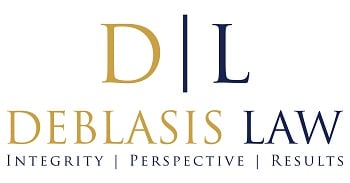Savvy lenders are aware that state statutes of limitations can impact their rights to enforce delinquent loans. It will also come as no surprise that the pandemic’s two-year enforcement delay, coupled with the foreclosure moratoria, pre-pandemic repayment agreements, and forbearance periods, have aged default portfolios. What many lenders may not be aware of, however, is the very short reaction time they will have for an aged loan coming out of bankruptcy.
In Ohio, the statute of limitations for enforcement of a delinquent promissory note is “six years after the due date or dates stated in the note or, if a due date is accelerated, within six years after the accelerated due date.” R.C. 1303.16(A). Most often, the questions to be asked here are (1) has the note been accelerated, and, if so, (2) when?
An action to enforce a written contract (e.g., a defaulted mortgage) “shall be brought within six years after the cause of action accrued” (for causes of action accruing on or after June 14, 2021; claims accruing prior to June 14, 2021, must be brought by the earlier of June 14, 2027, or the remaining period under the prior applicable statute of limitations). R.C. 2305.06. For delinquent mortgages, then, the trigger for the statute of limitations is the date of default, although an argument could be made that the cause of action does not accrue until any required demand period expires.
The bankruptcy code, however, contains a lesser-known pitfall for the uneducated. Code section 108(c) provides that if one of the foregoing statutes of limitations would have expired during a chapter 13 case, then the period will be extended until “30 days after notice of the termination or expiration of the stay …, with respect to such claim.” Because chapter 13 debtors often have long-overdue mortgages, and because chapter 13 cases often last several years, lenders must be mindful of loans in chapter 13 with running statutes of limitations. Every referral for a motion for relief from stay should be accompanied by an analysis of all applicable state statutes of limitations.
Relevant to this discussion, partial payments have never been recognized to toll the limitations period for negotiable instruments in R.C. 1303.16(A). Mohammad v. Awadallah, 8th Dist. No. 97590, 2012-Ohio-3455, ¶ 23 (“[Appellant] concedes that no court in Ohio has yet done this, and we decline to be the first to do so.”); Brisk v. Draf Industries, Inc., 10th Dist. No. 11AP-223, 2012-Ohio-1311, ¶ 24-25 (tolling provisions for contracts do not apply to limitations periods for negotiable instruments).
DeBlasis Law Firm stands ready to help with a full statute of limitations analysis. Feel free to contact us.
